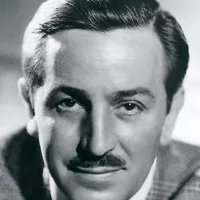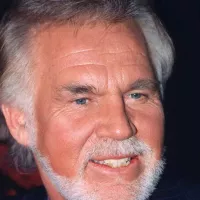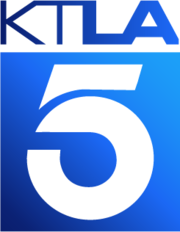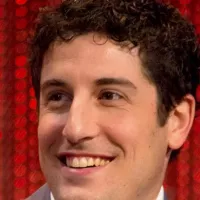The Los Angeles Angels are a professional baseball team located in the Greater Los Angeles area. They are a member of the American League (AL) West Division in Major League Baseball (MLB). Their home games have been played at Angel Stadium in Anaheim, California since 1966.
1903: Team Name Continued Through Pacific Coast League
In 1903, the name Los Angeles Angels continued through the Los Angeles Angels of the Pacific Coast League.
1961: KHJ-TV broadcasts Angels games
From 1961 to 1963, KHJ-TV held Angels broadcast rights.
1961: Franchise Founded in Los Angeles
In 1961, Gene Autry founded the Los Angeles Angels as one of MLB's first two expansion teams, originating in California, taking its name from a previous Los Angeles Angels franchise in the Pacific Coast League.
1961: KMPC airs Angels games
In 1961, KMPC began airing Angels games.
1961: Expansion Team in Los Angeles
In 1961, the Angels were established as an expansion franchise and played home games at Los Angeles' Wrigley Field.
1961: Inaugural Team Colors
In 1961, the Los Angeles Angels used predominantly blue with a red trim as the first team colors.
1961: Franchise Established by MLB
In 1961, the current Angels franchise was established by MLB after Gene Autry acquired the rights to the name from Walter O'Malley, former owner of the Los Angeles Dodgers.
May 5, 1962: Bo Belinsky pitches first no-hitter at Dodger Stadium
On May 5, 1962, Angels pitcher Bo Belinsky pitched the first no-hitter in Dodger Stadium history in a game against the Baltimore Orioles.
1962: Move to Dodger Stadium
In 1962, the Angels moved to the newly built Dodger Stadium, referred to as Chavez Ravine, where they were tenants of the Dodgers.
1963: KHJ-TV broadcasts Angels games
From 1961 to 1963, KHJ-TV held Angels broadcast rights.
September 2, 1965: Name Change to California Angels
On September 2, 1965, the team changed its name from Los Angeles Angels to California Angels.
1965: "The Big A" nickname coined
In 1965, Bud Furillo of the Herald Examiner coined the nickname "the Big A" for the stadium, referring to the tall letter A that served as the ballpark's primary scoreboard.
1965: Angels finish tenancy at Dodger Stadium
In 1965, the Angels finished their tenancy at Dodger Stadium.
1965: Name Changed to California Angels
In 1965, the franchise was renamed the California Angels, reflecting the team's impending move to Anaheim.
1965: Tenants of the Dodgers Through 1965
The Angels remained tenants of the Dodgers through 1965 at Dodger Stadium.
1966: California Angels move to Anaheim and change logo
In 1966, the California Angels moved to Anaheim and changed their logo.
1966: Move to Anaheim Stadium
In 1966, the California Angels moved to the newly constructed Anaheim Stadium in Anaheim.
1966: Home Games at Angel Stadium
In 1966, the Los Angeles Angels began playing their home games at Angel Stadium in Anaheim, California.
1968: Angels relocate to California and the AL West
In 1968, the Angels relocated to California and to the AL West.
1969: Dick Enberg becomes play-by-play announcer for KTLA
In 1969, Dick Enberg became the Angels play-by-play announcer for KTLA.
1969: Angels relocate to the AL West
In 1969, the Angels relocated to the AL West.
1971: Angels logo change
In 1971, the Angels adopted a new logo that featured the word "Angels" written on an outline of the State of California.
1972: Angels logo had a lower-case "A"
Between 1971 and 1972, the Angels logo featured the word "Angels" written on an outline of the State of California, with a lower-case "A".
1973: Angels logo had an upper-case "A"
From 1973 to 1985, the Angels logo featured the word "Angels" written on an outline of the State of California, with an upper-case "A".
1980: "The Big A" relocated
In 1980, "the Big A", the ballpark's primary scoreboard, was relocated to a section of the parking lot southeast of the stadium.
1984: Mike Witt pitches a perfect game
In 1984, Mike Witt pitched a perfect game for the Angels against the Rangers at Arlington Stadium.
1985: Angels logo remained the same
In 1985, the Angels logo with the upper-case "A" on an outline of the State of California, remained the same.
1986: Angels adopt "big A" logo
In 1986, the Angels adopted a new logo featuring the "big A" on top of a baseball with the shadow of California in the background.
1988: Angels establish team Hall of Fame
In 1988, the Angels established a team Hall of Fame.
1992: Angels discontinue "big A" logo
In 1992, the Angels discontinued the "big A" logo.
1993: Angels affiliate with Prime Ticket
In 1993, the Angels became affiliated with Prime Ticket.
1993: Angels re-adopt interlocking "CA" logo
In 1993, the Angels returned to their roots and re-adopted the interlocking "CA" logo, either on top of a blue circle or with nothing else.
1994: Kenny Rogers pitches a perfect game
In 1994, Kenny Rogers pitched a perfect game for the Rangers against the Angels.
1996: KCAL-TV holds Angels broadcast rights
From 1996 to 2005, KCAL-TV held Angels broadcast rights.
1996: KMPC ceases airing Angels games
In 1996, KMPC ceased airing Angels games.
1996: Angels continued to use interlocking "CA" logo
In 1996, the Angels continued to use the interlocking "CA" logo, either on top of a blue circle or with nothing else.
1996: Original Color Scheme Ended
In 1996, the original color scheme of predominantly blue with a red trim ended, having been in effect since 1961.
1996: California Angels name lasted until 1996
In 1996, the team name California Angels ended after having been the team's name since 1965.
1997: KRLA becomes flagship station
In 1997, KRLA became the flagship station for Angels games.
1997: Disney Takes Control of the Team
In 1997, The Walt Disney Company took control of the team, which also owned the Mighty Ducks of Anaheim of the NHL.
1997: Angels change name, logo and color scheme
In 1997, after the renovations of then-Anaheim Stadium and the takeover by the Walt Disney Company, the Angels changed their name to the "Anaheim Angels" along with changing the logo and color scheme to dark blue and periwinkle.
1997: Name changed to Anaheim Angels
In 1997, the franchise became known as the Anaheim Angels.
1997: Angels and Dodgers play first regular season game
In the 1997 season, with the introduction of interleague play, the Angels and Dodgers played each other in the regular season for the first time with a two-game series beginning on June 17 at Dodger Stadium.
1998: KRLA continues as flagship station
In 1998, KRLA continued as the flagship station for Angels games.
1998: ESPN West Plan Falls Through
In 1998, the plan to establish a rival cable channel called "ESPN West" fell through.
June 1999: Bench-clearing brawl between Angels and Dodgers
During a June 1999 series between the Angels and Dodgers, a bench-clearing brawl occurred when Angels pitcher Tim Belcher tagged out Dodgers pitcher Chan Ho Park after his at-bat, leading to Park punching and kicking Belcher. Park was ejected and suspended for seven games.
1999: KLAC becomes flagship station
In 1999, KLAC became the flagship station for Angels games.
2000: Rally Monkey's Debut
In 2000, the Rally Monkey was born when the scoreboard showed a clip from Ace Ventura: Pet Detective, after which the Angels rallied to win the game. A capuchin monkey was hired to star in original clips.
2001: Angels change logo back to "Big A"
In 2001, Disney changed the Angels' logo back to a "Big A" with a silver halo over a dark blue baseball diamond, changing the colors to red, dark blue and white.
September 26, 2002: First Playoff Spot and Sale Preparation
On September 26, 2002, the Angels clinched their first playoff spot in 16 years, and Disney hired Lehman Brothers to prepare for selling the team.
2002: Rally Monkey's National Attention
During the 2002 World Series against the San Francisco Giants, the Rally Monkey gained national attention. In Game 6, the Angels rallied from a 5-0 deficit to win the game and eventually the series.
2002: A's Moneyball tactics knock the Angels out of 1st seed
During the 2002 season, both the A's and Angels proved to be contenders. The A's Moneyball tactics led them to a league record 20 game winstreak; knocking the Angels out of the 1st seed in the division, finishing 4 games ahead while the Angels secured the Wild Card berth. The Angels ultimately won the World Series.
2002: Terry Smith becomes play-by-play commentator
In 2002, Terry Smith began providing play-by-play commentary for Angels games on the radio.
2002: World Series Win
In 2002, after the Angels won the World Series, player Tim Salmon honored Gene Autry, who had died four years prior, by bringing out his signature white Stetson hat, and Autry's #26 was retired.
2002: Members of 2002 team inducted to Hall of Fame
In 2002, members of the 2002 team were inducted into the Angels Hall of Fame.
2002: High Fan Attendance
Since 2002, the Angels have drawn at least 2 million fans per year to the stadium.
2003: High Fan Attendance
From 2003, the Angels drew more than 3 million fans per year to the stadium.
2003: Angels return to KSPN
In 2003, the Angels returned to KSPN for radio broadcasts.
2004: Angels beat Oakland in the final week of September
During the 2004 season, both the Angels and Oakland came down to the wire tied for wins headed into the final week of September. Oakland would fall in 2 crushing losses to the Angels with only one victory in the series coming in the final game. Oakland would find themselves eliminated from the playoff hunt, though the Angels would go on to suffer a crushing sweep at the hands of the eventual champion Boston Red Sox.
2004: Postseason Appearance
From 2004, the Angels reached the postseason and sparked a renewal of the Rally Monkey's popularity.
2004: Anaheim Angels name lasted until 2004
In 2004, the team name Anaheim Angels ended, after having been the team's name since 1997.
2005: KCAL-TV broadcast rights end
From 1996 to 2005, KCAL-TV held Angels broadcast rights.
2005: Los Angeles Added to Team Name
In 2005, "Los Angeles" was added back to the team's name, resulting in the name Los Angeles Angels of Anaheim due to a lease agreement.
2007: Mark Gubicza becomes color commentator
In 2007, Mark Gubicza began serving as color commentator for Angels games on television.
2007: Angels partnership with KSPN ends
In 2007, the Angels partnership with KSPN ended.
2009: Top Franchise in Fan Value
In 2009, the Angels were voted as the number one franchise in professional sports in Fan Value by ESPN magazine.
2009: Lawsuit Dropped
In 2009, the City of Anaheim dropped its lawsuit against the team's name change to Los Angeles Angels of Anaheim.
2009: Postseason Appearance
Until 2009, the Angels reached the postseason and sparked a renewal of the Rally Monkey's popularity.
2010: Victor Rojas becomes play-by-play announcer
In 2010, Victor Rojas became the Angels play-by-play announcer.
2010: High Fan Attendance
In 2010, the Angels had a game average of 40,000 fans at each game despite not making the playoffs.
2011: Halo on 'Big A' logo temporarily changed colors
For the 2011 season, as part of the 50th anniversary of the Angels franchise, the halo on the 'Big A' logo temporarily changed colors from silver to old gold, paying tribute to the Angels logos of the past. The uniforms also reflected the change to the gold halo for this season.
2011: High Fan Attendance
In 2011, the Angels had a game average of 40,000 fans at each game despite not making the playoffs.
2012: New patch added to uniforms
Before the 2012 season, a new patch was added on the uniforms, featuring a red circle encircling the words "Angels Baseball" and the club logo inside and flanking the year 1961 in the middle. The Angels' A with the halo now appears on three different locations of the jersey.
2012: ESPN & Fan Polls Ranking
In 2012, ESPN & Fan polls ranked the Angels fifteenth in the best sports franchises and third best among MLB teams.
2012: Mark Langston becomes color commentator
In 2012, Mark Langston began providing color commentary for Angels games on the radio.
2012: Wilson plays a joke on Napoli
In 2012, Wilson played a joke on Napoli, his former teammate, by tweeting his phone number, causing Napoli to exchange words with Wilson.
2012: Signing of Albert Pujols and Emergence of Superstars
In 2012, the Angels gained international attention with the signing of Albert Pujols and the rise of Mike Trout and Shohei Ohtani.
2012: High Fan Attendance
In 2012, the Angels had a game average of 40,000 fans at each game despite not making the playoffs.
2013: High Fan Attendance
In 2013, the Angels had a game average of 40,000 fans at each game despite not making the playoffs.
2013: Houston Astros join AL West division
In 2013, the Houston Astros joined the AL West division, adding them to the list of teams the Angels have rivalries with.
2013: Plan to Drop Anaheim from Name
In 2013, the team planned to drop "of Anaheim" from its name and restore its original name, Los Angeles Angels.
2014: Playoff Drought Begins
Since 2014, the Angels have not appeared in the postseason, marking the longest active playoff drought in MLB.
2015: Guinness World Records
As of 2015, the Angels fans had set six Guinness World Records for largest gatherings of people wearing blankets, wrestling masks, cowboy hats, wigs, Santa hats, superhero capes, and sombreros, and also set the world record for largest gathering of people with selfie sticks.
2015: Dick Enberg wins Ford C. Frick Award
In 2015, Dick Enberg won the Ford C. Frick Award for his work with the Angels.
2015: Los Angeles Angels Name Change
In 2015, the current name, Los Angeles Angels, came into use, marking the end of Los Angeles Angels of Anaheim.
2018: Vladimir Guerrero inducted into Hall of Fame
In 2018, Vladimir Guerrero was inducted into the Hall of Fame wearing an Angels cap insignia.
December 20, 2019: Sale of Angel Stadium Approved
On December 20, 2019, the city of Anaheim voted to sell Angel Stadium and surrounding land to a group led by Arte Moreno for $325 million.
2019: High Fan Attendance
Until 2019, the Angels drew more than 3 million fans per year to the stadium and were fifth in MLB in attendance, with a total of 3,019,012 people.
2020: Omission of 'of Anaheim' Suffix
As of 2020, most official sources omit the "of Anaheim" suffix from the team's name.
2020: Victor Rojas leaves play-by-play announcer position
In 2020, Victor Rojas left his position as play-by-play announcer.
May 24, 2022: Mayor Sidhu Resigns
On May 24, 2022, Anaheim mayor Harry Sidhu resigned amid bribery and corruption allegations related to the Angel Stadium deal.
December 9, 2023: Shohei Ohtani signs with the Dodgers
On December 9, 2023, Angels star pitcher and hitter Shohei Ohtani signed with the Dodgers in free agency, signing the largest contract in professional sports history.
2023: Wayne Randazzo becomes play-by-play announcer
In 2023, Wayne Randazzo became the play-by-play announcer for Angels games on FanDuel Sports Network West (FDSNW).
2023: Franchise Record Runs Scored
In 2023, the Angels set a franchise record by scoring 25 runs against the Rockies, including 13 runs in the third inning alone.
2024: "Dance With Me" by Blink-182 Becomes Home Run Song
Since 2024, the Angels' home run song has been "Dance With Me" by Blink-182.
2024: 5,000 Total Wins
Through 2024, the Angels were the first expansion team to reach 5,000 total wins.
2025: KCOP-TV to simulcast 12 Angels games
In 2025, the relationship with KCOP-TV expanded to include simulcasts of 12 Angels games during the regular season.
Mentioned in this timeline

Walter Elias Disney was a highly influential American animator film...
California is a U S state on the Pacific Coast...

Kenny Rogers was a highly successful American singer and songwriter...

Shohei Ohtani is a Japanese professional baseball player for the...

Albert Pujols nicknamed the Machine is a Dominican-American former MLB...

KTLA is a television station based in Los Angeles California...
Trending
4 months ago IonQ Stock Surges After Quantum Networking Breakthrough: A Quantum Internet Revolution?

2 months ago George Strait Announces Lubbock Concerts: Tickets on Sale November 21st!
8 months ago Oliver Glasner's Crystal Palace Eyes FA Cup Glory, While BVB Secures Champions League Spot.

9 months ago Jason Biggs reveals weight loss journey after health struggles, unveils shocking transformation

7 months ago Ilhan Omar criticizes US, warns of police state under Trump's tactics.
3 months ago Joe Manganiello Engaged to Caitlin O'Connor Two Years After Sofía Vergara Divorce
Popular

Thomas Douglas Homan is an American law enforcement officer who...

Martin Luther King Jr was a pivotal leader in the...

XXXTentacion born Jahseh Dwayne Ricardo Onfroy was a controversial yet...

William Franklin Graham III commonly known as Franklin Graham is...

Jupiter is the fifth and largest planet from the Sun...

Instagram is a photo and video-sharing social networking service owned...